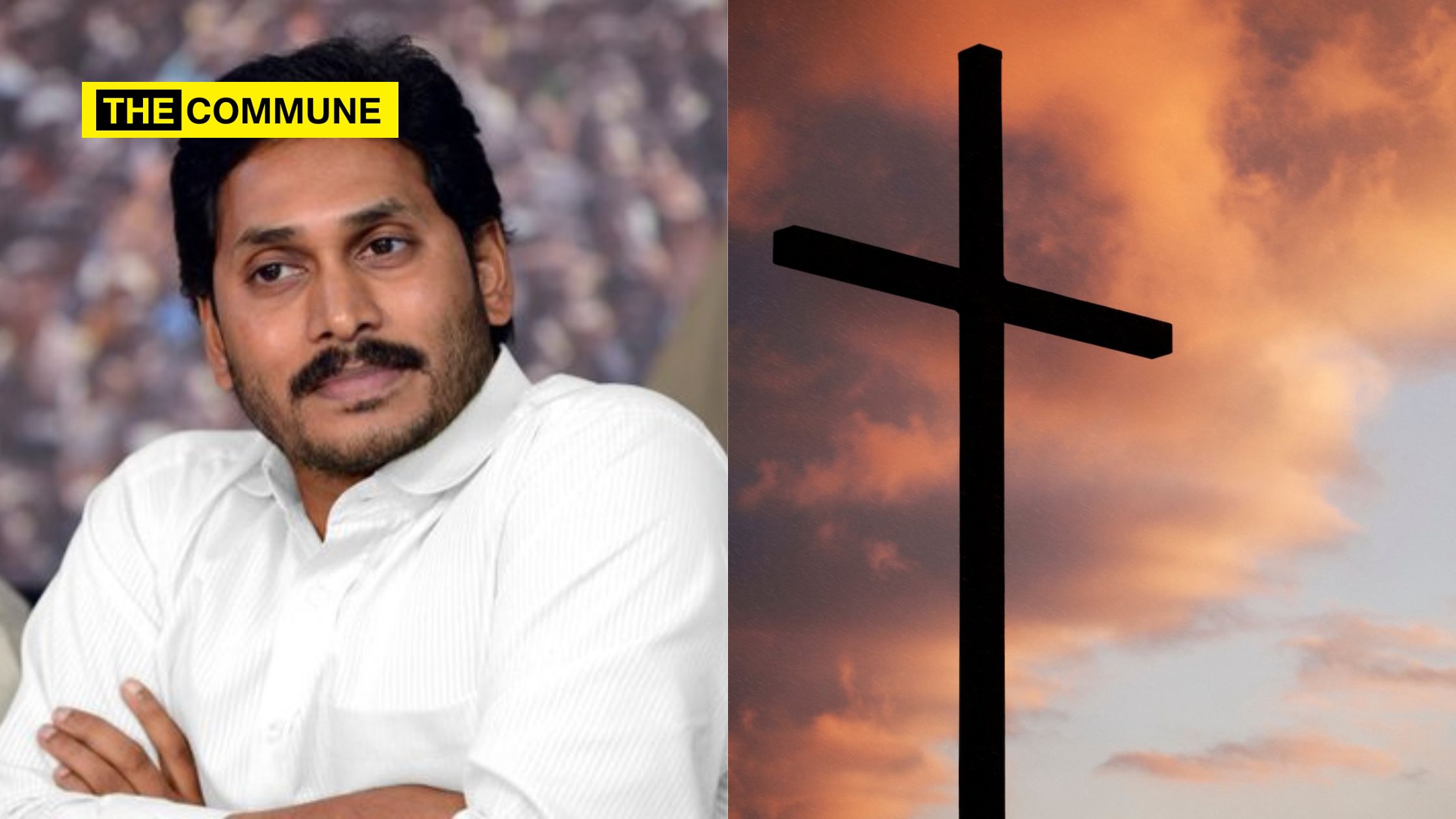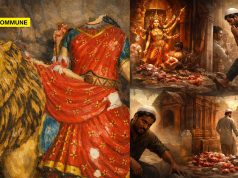
Vijayawada: A recent resolution passed in the Andhra Pradesh state assembly, proposing to extend Scheduled Caste (SC) reservation quotas to converted Dalit Christians, has prompted the state’s BJP unit to demand an annulment of the resolution and a clarification from the state government that no such resolution can be passed into Law until further clarity on the matter by the Supreme Court.
Assembly Passes Motion On SC Status For Converted Christians
The Andhra Pradesh assembly passed a Christian appeasement motion on March 24th, requesting the Centre to amend the Constitution (Scheduled Castes) Order, 1950, in extending SC status benefits to converted Christians within SC communities.
Andhra’s BJP leaders led by the state unit’s president, Somu Veerraju, called on the governor Mr. S. Abdul Nazeer, to seek his intervention with an irresponsible resolution passed by the chief minister, Jagan Mohan Reddy, and his YSRCP, in light of the fact that there is no clarity yet on similar motions filed previously with the Supreme Court of India. There has been a strong case for extending a special status for benefits and reservations only to Hindu members of SC communities, as stated in the Constitution and this has been acknowledged by the Supreme Court in the past.
Hindu petitioners and parties like the BJP have argued that including converted Christians in the SC category and allowing them to benefit from special status, would go against the very intent of special benefits granted to lower caste Hindus, as envisioned by the writers of the Constitution. They worry that it would be heavily misused by Christian missionary organisations, already engaged in aggressive conversion activities at the cost of native religions, customs, and traditions. They also argue that the benefits would be grabbed up by the converted Christians with the help of church organisations and that it would result in a huge loss of assistance and upliftment of the Hindu SC communities that it was originally meant for.
The BJP has demanded that the Jagan Reddy government issue a public clarification to help people understand that this resolution would not be implemented until the issue is addressed by a constitutional bench of the Supreme Court, in the larger national context.
The Debate Over Extending Scheduled Caste Status Benefits To Converted Christians: A History Rooted In The Indian Constitution And Missionary Activities.
Over the years, there have been petitions filed in the Supreme Court for guidance and clarity around the possibility of extending constitutionally granted Scheduled Caste (SC) reservations and special status to members of the community, intended for followers of Hinduism and the other Indic/ native religions of Sikhism, Buddhism, and Jainism. The writers of the Constitution proposed to grant special status to Hindu/ Indic-faith SC citizens in an attempt to assuage the historic denial of opportunities and social discrimination within the Hindu society, which had followed a social class system determined by the caste that a person was born into. Non-Indic, non-native faiths did not follow this uniquely Indian form of class division, hence the writers of the Constitution envisioned extending special benefits exclusively to SC Hindu citizens for a few decades, in an attempt to set right, historic wrongs.
The Indian Constitution’s writers and advisors were already aware in the 1930s, 40s, and 50s, of the attempts of Christian missionary organisations in using the caste narrative to convert gullible, vulnerable people to Christianity, especially members of the SC communities across India.
Both Dr. Ambedkar and Gandhi as well as several other leaders of the time did not approve of the missionary tactics of Christian evangelist groups whose charitable activities served as a façade for an ulterior motive of converting economically and emotionally vulnerable people to Christianity, often citing Hinduism’s caste system.
Followers and admirers of both leaders have recorded their views on Christian missionary activities in India. Both leaders disapproved of Christian conversion tactics of maligning misinterpreted aspects of the native Hindu faith while simultaneously utilising financial incentives/ charitable activities to lure SC citizens. Ambedkar encouraged his fellow Dalits to consider an Indic religion like Buddhism instead of non-Indic faiths, carrying strong strains of religious fanaticism. Instead of promoting Christianity or Islam with his Dalit brethren looking for a change of faith, Ambedkar favoured an indigenous faith like Buddhism. Gandhi exhorted people to study their own religions deeply and follow their own religion’s principles in good faith without maligning other religions.
Jagan Reddy’s Push To Include Converted Christians In Scheduled Caste Benefits And Expand ST List
Incidentally, Jagan Reddy and his family are converted Christians including his father, Y.S Rajashekara Reddy, a former chief minister of undivided Andhra Pradesh. His father had stirred a similar controversy during his tenure when he had talked of including Christian converts as beneficiaries to reservations and welfare schemes earmarked for members of the ST and Hindu SC communities. Andhra and Telangana Hindus have repeatedly said that Christian conversion activities in the Telugu states had increased substantially during Rajasekhara Reddy’s stint as chief minister. Both Jagan Reddy and his father enjoyed significant electoral (and many claim, financial support) of the Christians and Christian organisations in the state.
Jagan Reddy won his first election in Andhra’s 2019 state elections, riding on a strong, united minority electorate and a divided Hindu vote bank that he managed to split across caste lines. Andhra’s principal opposition party, the Telugu Desam Party (TDP), and its likely ally, the Jana Sena Party (JSP) along with the state’s BJP are hoping to keep the Hindu vote bank united across caste lines, in the 2024 state elections.
In addition to the controversial SC resolution, the Andhra Pradesh assembly also passed a ‘copycat’ resolution mimicking a recent Telangana government proposal, to include the Boya/Valmiki community in the state’s list of Scheduled Tribes (ST). The YSRCP is now trying to assure the currently listed ST and SC communities that their special quotas would not be impacted or diminished by adding new groups to the already bloated list of castes and tribes specified in the state’s current official listing.
Click here to subscribe to The Commune on Telegram and get the best stories of the day delivered to you personally.




